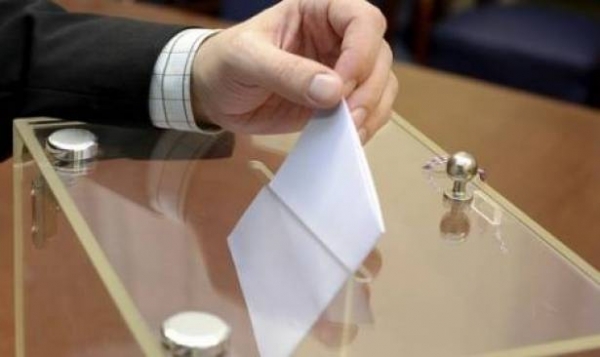The Electoral Law of the 1960s : Restores long-lost rights ... Detrimental and utterly rejected
- Election of General Michel Suleiman as President of the Republic
- Adopting the Qada’a as an electoral district in conformity with the 1960s’ electoral law with amendments in the districts of Beirut, as four MPs will be elected uncontested in the Beirut 2 district with two belonging to March 8 Forces and two also belonging to March 14
- Formation of a national unity government
Therefore, Parliament approved on September 29 the electoral law, which was issued on October 8, 2008 under the No. 25.
Majority of parties, particularly General Michel Aoun, Patriarch Sfeir, the Future Movement and the Progressive Socialist Party, applauded the law. Hezbollah, Amal Movement and the Syrian Social Nationalist Party expressed reservations over the law and former PM Omar Karami utterly opposed it. The Future Movement had demanded earlier an electoral law based on proportionality.
Today, the majority of the Christians are contesting the electoral law, which they once embraced, together with the Amal Movement and Hezbollah, while the Future Movement and the PSP are challenging proportionality. MP Boutros Harb has also deviated from his previous position and voiced his opposition to proportionality.
Jumblat and the Future Movement have maintained consistent stance on the 1960s’ law, while the shifting opinion has proved substantial among the Christians.
Stances in 2008
“I congratulate the Lebanese for the approval of the new electoral law and I hope to see a proportional electoral system materialize.” (Statement by the then PM Fouad Seniora on September 30, 2008).
“The approval of the law defuses the political tension. However, not approving proportionality is not a beneficial move.” (Statement by the then Minister of Interior and Municipalities Ziad Baroud on September 29, 2008).
“It is the first time we witness parliamentary consensus over holding the elections on time, much as it is the first time we agree on a reformative electoral law eight months prior to the elections.” (Statement by MP Ali Hassan Khalil on September 25, 2008).
“I regret that the there was an accord in Doha on the 1960s’ law. There is no worse law than this one. May God shield us from it and from the sectarian federations.” (Statement by former PM Omar Karami on September 27, 2008).
“We are surprised that this compromise has been reached at the expense of proportionality and the adoption of Lebanon as a single district. The SSNP expresses reservations over the 1960s’ law.” (Statement by MP Marwan Fares on September 29, 2008)
“The electoral distribution has been addressed on a pluralistic system, which is not a progressive reformative step but rather an exceptional one to relieve the Christians first, then move towards reform later. I do support proportionality but I believe that the priority today is to tackle the mental stance of the Christian community.” (Statement by MP Boutros Harb on September 27, 2008).
“There won’t be fair representation without a proportional system, but we will abide by all the terms of the Doha Agreement and comply with the 1960s’ law.” (Statement by MP Ahmad Fatfat in Parliament on September 27, 2007).
“This law has restored long-lost rights.” (Banners raised by the Free Patriotic Movement supporters upon the return of General Michel Aoun from Doha in 2008).
Stances in 2012 and 2013
“The electoral law of the 1960s is inequitable and at odds with the constitutional principles.” (Statement by Michel Aoun on November 12, 2012).
“The Future Movement announces its disapproval of a proportional voting system at this particular stage due to the systemic dominance of de facto powers over certain regions.” (Statement by the Future Movement on January 8, 2013).
“I urge the formulation of a new electoral law, as that of the 1960s law marginalizes a significant segment of the Lebanese population.” (Statement by Patriarch Al-Rai on December 4, 2013).
“It is irrational to propose proportionality at a time when sectarian divides are at their peak. The smaller the districts become, the closer we get to the Orthodox Gathering proposition, which can’t be passed under any circumstances. The most convenient exit at the moment is the 1960s’ law.”(Statement by Walid Jumblat on September 29, 2012).
“I oppose the Orthodox Gathering proposition and the proportional voting system under the presence of illegitimate weapons in Lebanon.” (Statement issued by MP Boutros Harbs’s media office on January 9, 2013).








Leave A Comment